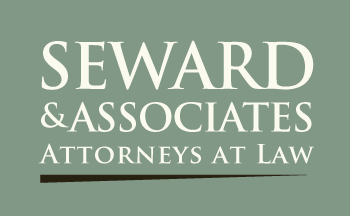In today’s increasingly knowledge-driven and highly competitive economy, a business’ success depends more and more on the protection and growth of its intangible assets.
One of the most overlooked intangible assets for small and midsized businesses is the intellectual property (IP) generated in those businesses. Regardless of a business’ industry, market share or location, virtually all businesses possess some form of protectable and valuable IP. A good way to begin protecting your IP assets is to integrate your IP into your business planning process.
A business plan is a mechanism to ensure that the resources or assets of a business are applied profitably across all its activities for developing and retaining a competitive edge in the market place. For a new business, it provides a blueprint for success, while for an ongoing business it provides an overview of where a business is at present, how the business is positioning itself, and how it seeks to achieve its objectives to become and/or remain successful.
Before drafting your business plan, you need to think over a number of issues. One of those issues should include identifying the commercial relevance of IP assets, whether owned by you or to which you have authorized access, and the resources needed for obtaining and maintaining these assets.
Here are some key points relating to IP that you need to consider while preparing your business plan:
What Intellectual Property asset do you own?
- Identify and classify your IP assets. These assets can include:
- Name brands
- Confidential information
- Trade names
- Trademarks
- Copyrights
- Computer systems software
- Customer lists
- Business plans
- Slogans
- Visual and literary works
- Identifying symbols
- Creative expressions
- Domain names
- Utility models and patents for inventions.
- Identify other intangible assets you have. In this context, consider franchise, license and distribution agreements; publishing rights; and covenants not to compete.
What is the status of your IP portfolio?
- Do you have a system for identification of your IP assets?
- Do you have an IP portfolio? When was it created and who created it?
- Do you have IP assets that are registerable? If so, are they or should they be registered? Are they also registered in foreign countries/export markets? Is the registration to be renewed? If so, when?
- Do you conduct or plan to conduct IP audits?
How do you plan to protect your IP assets?
- If you commercialize your IP assets, do you have arrangements securing the ownership or co-ownership of your IP assets?
- If you outsource a part of your business activities, do you have contracts in place that ensure your IP rights over the outsourced work and prohibit others from taking advantage or commercializing your product without your authorization?
- How easy or difficult is it for others to properly acquire or duplicate your confidential business information?
- What measures are taken to guard the secrecy of your confidential business information?
- Have you included confidentiality or non-disclosure clauses and non-compete clauses in the employment agreements with your employees and business partners?
- Have you ensured that confidential business information or trade secrets are not available or lost by display on or through your website?
Do you own all IP assets that you need or do you rely on IP assets owned by others?
- Do you own the IP assets that you are using?
- Can you prove it? Do you have the records, registrations, contracts, and other proof that an investor, business partner or a court of law may require?
- Have you identified any potential third-party claims on the IP assets that you own?
- Are you sure you are not infringing IP rights of someone else?
- Have you conducted a patent, trademark and/or industrial design search?
- Have you verified if any of your employees, who have worked with a competitor in the past, is not bound by post-employment non-compete or non-disclosure confidentiality agreements by the previous employer?
- Have you been granted the necessary license to use IP that is not owned by you?
While business owners remember to lock the doors, they often leave their IP vulnerable. By protecting its intellectual property, businesses can maintain and enhance the goodwill they enjoy with their customers, vendors, and other business partners.
Caitlin Bellum is a contributing author to this blog and has been admitted to practice law in the state of Washington. She practices in the fields of intellectual property, litigation, trademarks and licenses at Hendricks & Lewis, PLLC.
